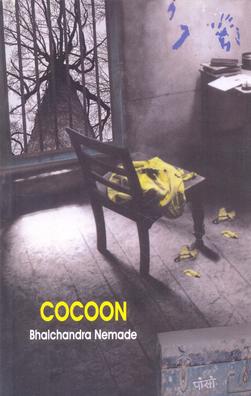Related Research Articles

The Durrani Empire, colloquially known as the Afghan Empire, or the Sadozai Kingdom, was an Afghan empire founded by the Durrani tribe of Pashtuns under Ahmad Shah Durrani in 1747, which spanned parts of Central Asia, the Iranian plateau, and the Indian subcontinent. At its peak, it ruled over present-day Afghanistan, much of Pakistan, parts of northeastern and southeastern Iran, eastern Turkmenistan, and northwestern India. Next to the Ottoman Empire, the Durrani Empire is considered to be among the most significant Islamic empire of the second half of the 18th century.

Marathi is a classical Indo-Aryan language predominantly spoken by Marathi people in the Indian state of Maharashtra and is also spoken in other states like in Goa, Karnataka, Tamil Nadu, Telangana, Gujarat, Kerala, Madhya Pradesh, Chhattisgarh, and the territory of Dadra and Nagar Haveli and Daman and Diu and also in parts Pakistani province of Sindh. It is the official language of Maharashtra, and an additional official language in the state of Goa, where it is used for replies, when requests are received in Marathi. It is one of the 22 scheduled languages of India, with 83 million speakers as of 2011. Marathi ranks 13th in the list of languages with most native speakers in the world. Marathi has the third largest number of native speakers in India, after Hindustani and Bengali. The language has some of the oldest literature of all modern Indian languages. The major dialects of Marathi are Standard Marathi and the Varhadi Marathi. Marathi was designated as a classical language by the Government of India in October 2024.

The Third Battle of Panipat took place on 14 January 1761 between the Maratha Confederacy and the invading army of the Durrani Empire. The battle took place in and around the city of Panipat, approximately 97 kilometres (60 mi) north of Delhi. The Afghans were supported by three key allies in India: Najib ad-Dawlah who persuaded the support of the Rohilla chiefs, elements of the declining Mughal Empire, and most prized the Oudh State under Shuja-ud-Daula. The Maratha army was led by Sadashivrao Bhau, who was third-highest authority of the Maratha Confederacy after the Chhatrapati and the Peshwa. The bulk of the Maratha army was stationed in the Deccan Plateau with the Peshwa.

Shivaji I was an Indian ruler and a member of the Bhonsle dynasty. Shivaji carved out his own independent kingdom from the Sultanate of Bijapur that formed the genesis of the Maratha Confederacy.

The Maratha Confederacy, also referred to as the Maratha Empire, was an early modern polity in the Indian subcontinent. It comprised the realms of the Peshwa and four major independent Maratha states often subordinate to the former. It was established in 1674 with the coronation of Shivaji as the Maratha Chhatrapati and recognised by Emperor Bahadur Shah I as a tributary state in 1707 following a prolonged rebellion. Following this, the Marathas continued to recognise the Mughal emperor as their nominal suzerain, similar to other contemporary Indian entities, though in practice, imperial politics at Delhi were largely influenced by the Marathas between 1737 and 1803.

Ramdas, also known as SamarthRamdas or Ramdas Swami, was an Indian Hindu saint, philosopher, poet, writer and spiritual master. He was a devotee of the Hindu deities Rama and Hanuman.

Khatri is a caste originating from the Malwa and Majha areas of Punjab region of South Asia that is predominantly found in India, but also in Pakistan and Afghanistan. The Khatris claim they are warriors who took to trade. In the Indian subcontinent, they were mostly engaged in mercantile professions such as banking and trade. They were the dominant commercial and financial administration class of late-medieval India. Some in Punjab often belonged to hereditary agriculturalist land-holding lineages, while others were engaged in artisanal occupations such as silk production and weaving.
Marathi literature is the body of literature of Marathi, an Indo-Aryan language spoken mainly in the Indian state of Maharashtra and written in the Devanagari and Modi script.

Kosala, sometimes spelled Kosla, is a Marathi novel by Indian writer Bhalchandra Nemade, published in 1963. Regarded as Nemade's magnum opus, and accepted as a modern classic of Marathi literature, the novel uses the autobiographical form to narrate the journey of a young man, Pandurang Sangvikar, and his friends through his college years.

Bala Hissar, also spelt Bala Hisar, is an historic fortress located in Peshawar, Khyber Pakhtunkhwa, Pakistan. First mentioned by 7th-century explorer Xuanzang, the fort was used as a royal residence for the Durrani Empire since 1747, when the Afghan king, Ahmad Shah Durrani, conquered Peshawar. The Marathas briefly occupied it after capturing Peshawar in 1758 but it was soon retaken by the Afghans. The Sikhs destroyed and reconstructed the fort after capturing Peshawar in March 1823. In 1849, the British East India Company reconstructed the fort's outer walls.

Vishwasrao Bhat was the eldest son and heir of Peshwa Balaji Baji Rao of the Maratha Empire. From early in his life, he was trained in administrative matters and exposed to military training since childhood. He died while fighting on the front lines during the Third Battle of Panipat.

The Phulkian dynasty of Maharajas or sardars were Sikh royals and aristocrats in the Punjab region of India. Members of the dynasty ruled the states of Badrukhan, Bhadaur, Faridkot, Jind, Malaudh, Nabha, and Patiala, allying themselves with the British Empire according to the terms of the Cis-Sutlej treaty of 1809. The dynasty is named after Phul Sidhu-Brar, the 17th-century common ancestor of the Phulkian states and the founder of the Phulkian Misl. After India's independence in 1947, the Phulkian states had all acceded to India by 1948. Members of the various royal families of the Phulkian dynasty retained their titles until 1971, when the Government of India abolished their titles with the 26th Amendment to the Constitution of India.
Vaman Pandit (1608–1695) was a Marathi scholar and poet of India. Vaman Pandit from the house of Sesha was a great poet whose poetry made quite an impact on the whole Maharashtra. Vaman Pandit's narrative poem have been very popular with masses and the Kirtankars. His main contribution lies in the fact that he has given a sound metaphysical foundation to the concept of Bhakti.
Dalit literature is a genre of Indian writing that focuses on the lives, experiences, and struggles of the Dalit community over centuries, in relation to caste-based oppression and systemic discrimination. This literary genre encompasses various Indian languages such as Marathi, Bangla, Hindi, Kannada, Punjabi, Sindhi, Odia and Tamil and includes narrative-styles like poems, short stories, and autobiographies. The movement started gaining influence during the mid-twentieth-century in independent India and has since spread across various Indian languages.
Bakhar is a form of historical narrative written in Marathi prose. Bakhars are one of the earliest genres of medieval Marathi literature. More than 200 bakhars were written in the seventeenth to nineteenth centuries, the most important of them chronicling the deeds of the Maratha ruler Shivaji. Bakhars are considered valuable resources depicting the Maratha view of history.

Maharashtra is a state in the western region of India. It is India's second-most populous state and third-largest state by area. The region that comprises the state has a long history dating back to approximately 1300–700 BCE, although the present-day state was not established until 1960 CE.
Punjabi Muslims are Punjabis who are adherents of Islam. With a population of more than 112 million, they are the third-largest predominantly Islam-adhering Muslim ethnicity in the world, after Arabs and Bengalis.

Ala Singh (1691–1765) was the founder and first ruler of Patiala. Singh was born into the Sikh Phulkian dynasty, rising to power through key battles in his early life, Singh expanded his territory in Punjab. As an adult, Singh was constantly engaged in battles and war. Through warfare and diplomacy, Singh began to acquire territory that would form the foundations of Patiala State. In 1763, he established the city of Patiala and founded Patiala State. Singh, at various times, had both adversarial and allied relations the Afghan Durrani Empire. Ahmed Shah Durrani, the King of the Durrani Empire, granted Singh the title of Raja and other royal powers. After being granted the title of Raja, Singh became the first Sikh monarch in history.
Shakakarte Chhatrapati Shri Shivaji Maharaj yanche Saptaprakaranatmak Charitra, better known as Chitnis Bakhar, is a Marathi language biography of Shivaji, the founder of the Maratha Empire. It was written by Malhar Ram Rao Chitnis, whose ancestor Balaji Avaji held the position of Chitnis under Shivaji.
References
- ↑ Deshpande, Prachi (2007). Creative pasts: historical memory and identity in western India, 1700-1960. Columbia University Press. pp. 19–39. ISBN 978-0-231-12486-7.
- ↑ Mukherji, Sujit, ed. (1998). A dictionary of Indian literature: beginnings-1850. New Delhi: Orient Longman. p. 51. ISBN 81-250-1453-5 . Retrieved 20 August 2021.
- ↑ Deshpande, Sunita (2007). Encyclopaedic Dictionary of MARATHI LITERATURE Volume 1. New Delhi: Global Vision Publishing House. p. 68. ISBN 978-81-8220-222-1 . Retrieved 20 August 2021.